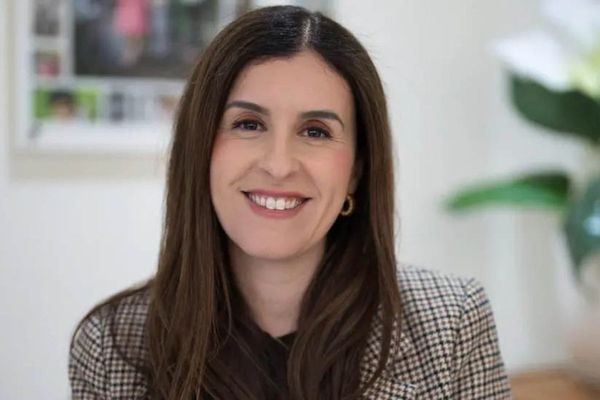
Feeling distant from your adult child can be one of the most painful experiences for any parent. Maybe you remember the days when you were inseparable, but now, conversations are brief, visits are rare, and the phrase “we’re not close” stings more than you’d like to admit. This topic matters because family closeness isn’t just about shared DNA—it’s about trust, respect, and emotional safety. When that bond weakens, it can leave both parents and adult children feeling lost, misunderstood, and even resentful. Understanding the reasons behind this distance is the first step toward healing and rebuilding a meaningful connection. Let’s explore the most common reasons adult children say, “we’re not close,” and what you can do about it.
1. Unresolved Childhood Issues
Many adult children carry emotional baggage from their upbringing, even if their parents believe the past is water under the bridge. Unresolved issues can linger for years, like feeling unheard, unsupported, or criticized. These wounds often resurface in adulthood, making it hard for children to feel safe or open with their parents. If your adult child brings up the past, listen without defensiveness. Acknowledge their feelings, even if you don’t fully agree with their perspective. Sometimes, a sincere apology or a willingness to talk things through can open doors that have been closed for years.
2. Lack of Emotional Support
As children grow up, their need for emotional support doesn’t disappear—it just changes. Adult children want to feel respected and understood, not judged or dismissed. They may pull away to protect themselves if they sense that their feelings are minimized or their choices are constantly questioned. To foster closeness, practice active listening and validate their emotions, even when you disagree. Ask open-ended questions and show genuine interest in their lives. Remember, emotional support is about being present, not about fixing their problems.
3. Boundary Issues
Healthy boundaries are essential for any relationship, especially between parents and adult children. Overstepping—offering unsolicited advice, prying into personal matters, or showing up unannounced—can make adult children feel smothered or disrespected. On the flip side, being too distant or unavailable can also create a rift. The key is communicating expectations openly and respecting each other’s space. If you’re unsure where the line is, ask your child what feels comfortable for them. Setting and respecting boundaries is a sign of mutual respect and maturity.
4. Differences in Values or Lifestyles
As children become adults, their values, beliefs, and lifestyles may diverge from those of their parents. These differences can create tension and misunderstanding, whether it’s about career choices, relationships, religion, or politics. If conversations frequently turn into debates or lectures, your adult child may start to avoid meaningful interactions. Instead of trying to change their mind, focus on finding common ground and celebrating your differences. Express curiosity rather than judgment, and remember that love doesn’t require agreement on every issue.
5. Poor Communication Patterns
Communication is the backbone of any close relationship. If interactions are filled with criticism, sarcasm, or avoidance, it’s no wonder adult children feel distant. Sometimes, old habits—like interrupting, lecturing, or dismissing—carry over from childhood and become barriers in adulthood. To improve communication, be mindful of your tone and body language. Practice active listening, and avoid jumping to conclusions or offering solutions unless asked. If conversations are consistently difficult, consider seeking help from a family therapist.
6. Life Transitions and Busyness
Life gets busy—careers, relationships, parenting, and other responsibilities can make it hard to stay connected. Sometimes, the distance isn’t about hurt feelings or conflict, but simply a lack of time and energy. If you notice your adult child pulling away, check in with empathy rather than guilt. Offer flexible ways to stay in touch, like texting, video calls, or short visits. Let them know you understand their busy life and that you’re there when they need you. Small, consistent gestures can help maintain a sense of closeness, even during hectic seasons.
7. Unmet Expectations
Parents and adult children often have unspoken expectations about how their relationship “should” look. When reality doesn’t match these expectations, disappointment and resentment can build. Maybe you hoped for weekly dinners, but your child prefers monthly check-ins. Or perhaps your child expected more emotional support than you realized. The solution is to talk openly about your hopes and needs, and to be willing to compromise. Let go of rigid ideas about closeness, and focus on building a relationship that works for both of you.
Rebuilding Closeness: It’s Never Too Late
Feeling distant from your adult child can be heartbreaking, but it’s not a life sentence. Relationships are dynamic and can change with effort, empathy, and honest communication. Start by reflecting on your own actions and being open to feedback. Reach out with kindness, and be patient as trust rebuilds over time. Remember, the goal isn’t perfection—it’s connection. Every small step counts, and it’s never too late to start moving closer together.
What has helped or hurt your relationship with your adult child? Share your thoughts in the comments below.
Read More
The post What Makes Adult Children Say “We’re Not Close” appeared first on Budget and the Bees.







